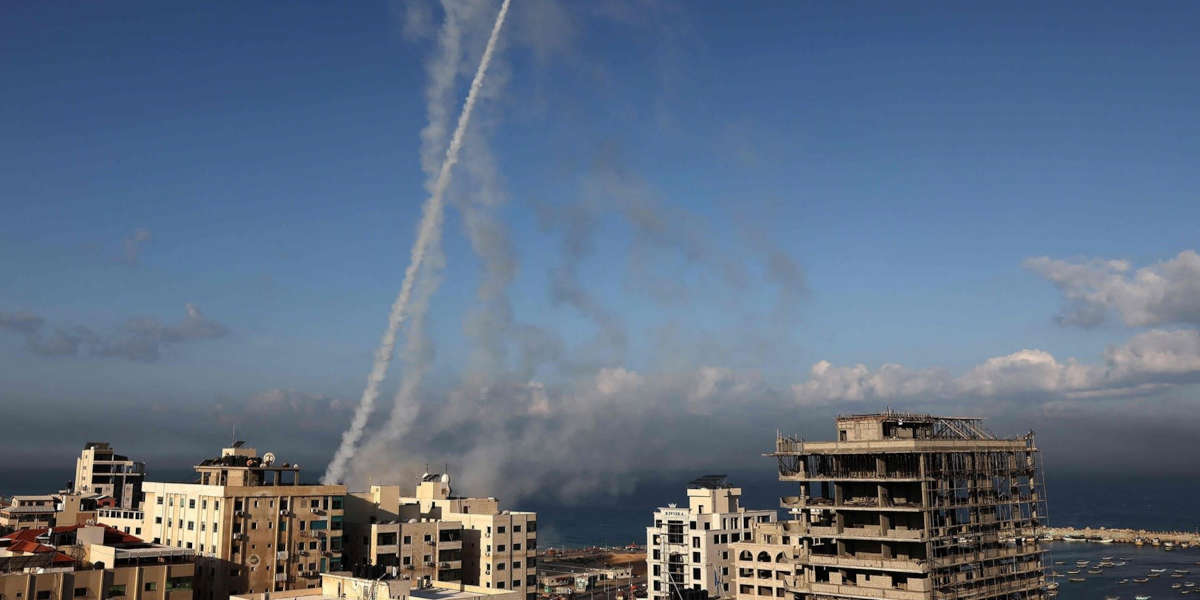In the picture
Shells launched from Gaza [video capture].
The State of Israel is under attack by Hamas, the de facto authority in the Gaza Strip, a terrorist group that won the 2006 parliamentary elections and a year later used force to take control of Gaza. Hamas has resorted to the use of violence in its confrontation with the State of Israel, has condemned the growth of Jewish settlements and for years has carried out attacks and launched missiles into Israeli territory.
News reports speak of beheaded children, civilians taken hostage and entire families slaughtered without any subject respect for human dignity, all amidst celebrations from Iran. In response, the United States has mobilized a naval strike group , with its most modern aircraft carrier, and has assured that Israel will have everything it needs to defend itself.
Israel has declared a total closure of Gaza, leaving entire populations without water, without access to food and without electricity, and has attacked civilian infrastructure. Thus, the massacred and tortured families on the one hand, are now followed by the numerous Palestinian victims of the bombings on the other. In this escalation, the terrorist Hamas group assures that it will kill and broadcast live the murder of a hostage for each Palestinian killed, while Israel declares a total offensive on a strip from which, in a total blockade, it would only be possible to escape through Egypt. However, the Egyptian government gave the order to close the Rafah border crossing, which connects Egypt with Gaza, to "prevent the mass exodus" of Palestinians, in an attempt to avoid furthering Israel's "pretensions".
But what should the international community demand of Israel which, as a legitimate state, has resorted to an unprecedented response to ensure its survival, in line with its primary responsibility to protect its population, and how should a state respond when the aggressor does not respect the most basic human rights and attacks civilians in a widespread and systematic manner?
Once again we are faced with a reality that is not very developed in international law, which must adapt to the asymmetry of current conflicts and not allow a return to the events experienced in the great wars of the last century with indiscriminate human losses. Beyond the legitimate defense of a State, which is due to it considering that its sovereignty derives unquestionably - among other factors - from its capacity to protect its population, its defensive actions must also be limited by proportionality and respect for international humanitarian law, which is binding on it. So what is the limit when the aggressor does not adhere and does not intend to adhere to these same limits?
We find a gray space between the impassable limits owed to States as legitimate members of the international community, which oblige them to respect international humanitarian law, and an aggressor whose actions will not be limited by the spectrum of non-coercive measures developed over the years to put an end to barbarism and protect the population of a State. When heinous crimes are committed by terrorist groups, the aggressor's behavior is unpredictable and involves violations that go against human dignity such as torture, sexual violence, forced displacement of civilian hostages and other acts that shock the human conscience.
However, the total blockade of a population by a State which, in its defense, indiscriminately attacks civilians after declaring a total offensive is contrary to international humanitarian law. It must be made clear that attacking civilians, destroying their infrastructure and limiting basic services, as well as causing famine can constitute crimes against humanity. A State's responses must be limited to measures that affect the civilian population as little as possible and whose effects are not generalized on that population; measures must be directed at "military targets", if by military targets we can call in this case the insurgent members of Hamas and its leaders and instructions of operation. The establishment of humanitarian corridors to allow the civilian population to leave the Gaza Strip is imperative. At final, a proportional response must have as goal those responsible for committing heinous crimes and not the civilian population.
With the military escalation of Operation Iron Swords, indiscriminate human losses are expected even though it is evident that in comparative terms there is no possibility that Hamas can achieve its objectives by force. In just five days the human losses have reached 1,200 dead in Israel and at least 1,055 in the Gaza Strip. There is also concern that another front may open up at the hands of Hezbollah from the Lebanese border.
The complexities of today's conflicts also require a complex interpretation, instead of settling, from the comfort of our homes, for a simple narrative flooded by 'fake news' that tends to reduce the conflict - depending on the media - to something between "them the good guys" and "them the bad guys". We really need to take a critical look at the direction in which our societies are heading. We are witnessing a conflict where the world's population is divided into good guys and bad guys, where biased arguments are worth more than the lives of the innocent victims of the conflict, be they Palestinian or Israeli.

